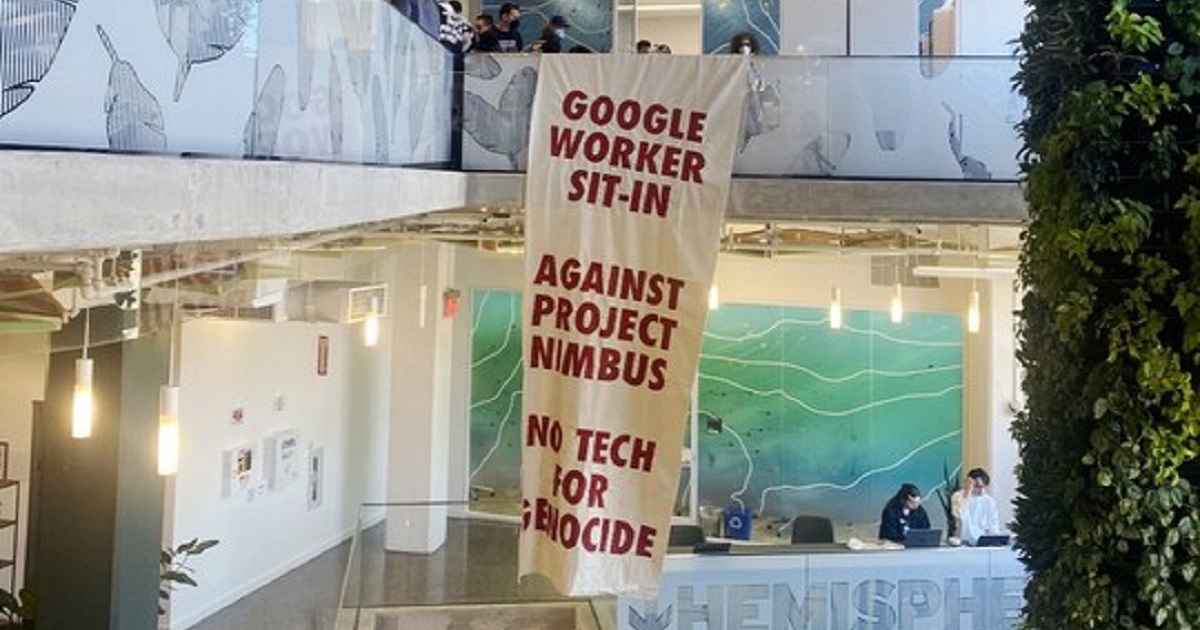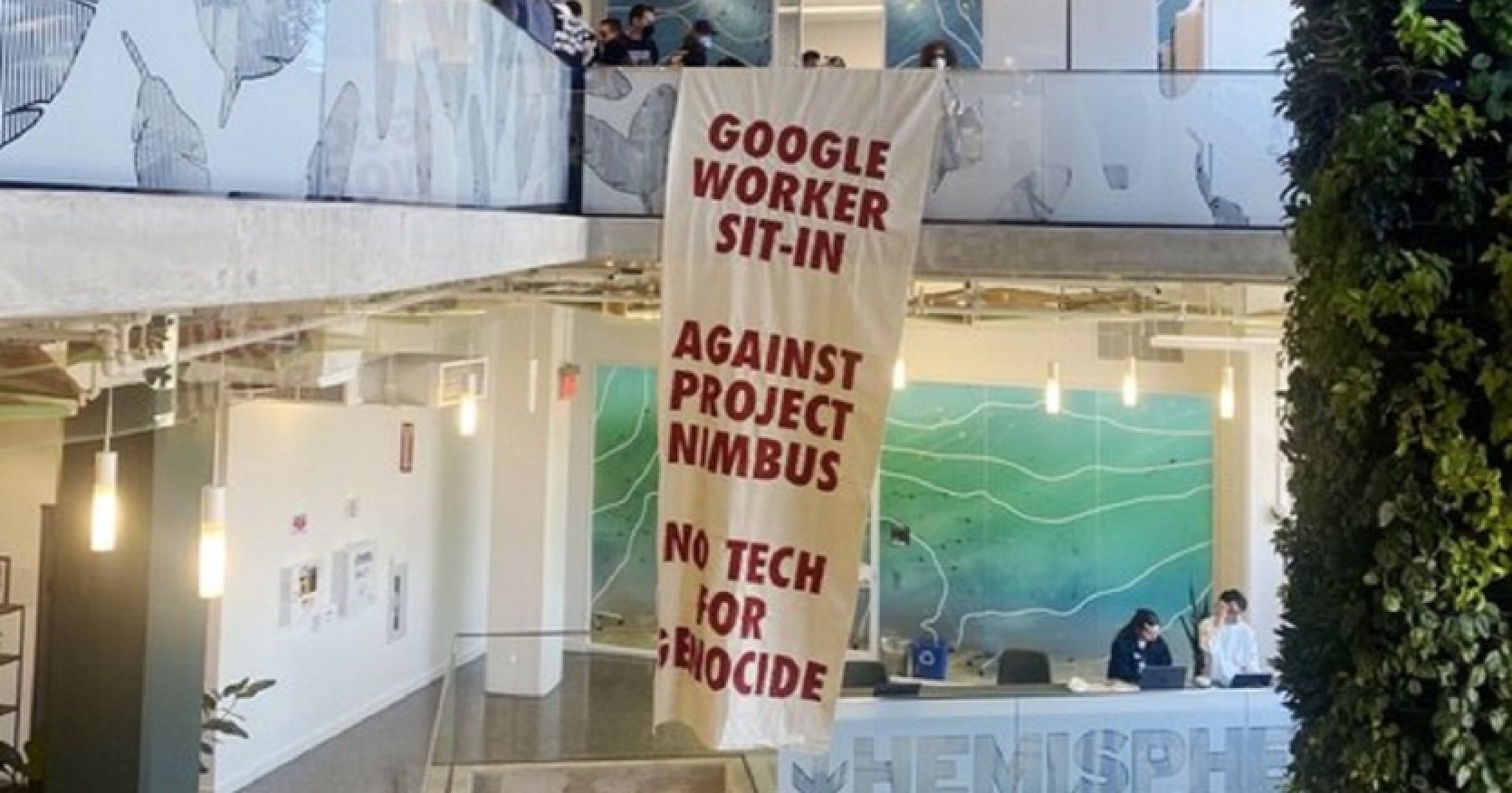A dozen Google employees were arrested in company offices for protesting against cooperation with the government of Israel.
This was reported by the Washington Post.
Google employees on Tuesday evening organized a sit-in protest against the corporation's cooperation with the government of Israel in the company's offices in New York and Sunnyvale, California.
According to one of the protesters, nine employees were arrested in both offices.
The protesters entered the offices around 2:00 pm, promising to stay there until Google terminated the contract to provide cloud services and data processing centers to the Israeli government.
In a video obtained by The Washington Post, police officers can be seen entering the Google office and calmly telling the protesters that they will be arrested if they do not leave.
However, the employees refused, after which the police asked them to turn around and put their hands behind their backs.
“Physical obstruction of work for other employees and preventing them from entering our premises is a clear violation of our policy, and we will conduct an investigation,” said Google representative Bailey Thomson.
As a result, the company sent the protesters on "administrative leave" and confiscated all their passes. Law enforcement officers were involved, according to the company, after the protesters refused to leave the premises.
Nimbus - 2021 contract
The contract, known as Nimbus, was signed back in 2021. But dissatisfaction has increased significantly in the last 7 months.
Employees have already sent emails, protested outside company offices, and blocked traffic on one of the main streets of New York.
In early March, Google fired an employee who stood up during a speech by a top manager of the Israeli office of Google in protest.
Employees are outraged that the results of their work may be used for military purposes, as under the terms of the agreement, Google and Amazon employees cannot refuse government agencies certain services.

Some Amazon employees at a shareholders meeting previously demanded accountability, stating that “the use by customers of observation, computer vision, or cloud storage products and services does not violate international humanitarian law”.














Comments (0)
There are no comments for now